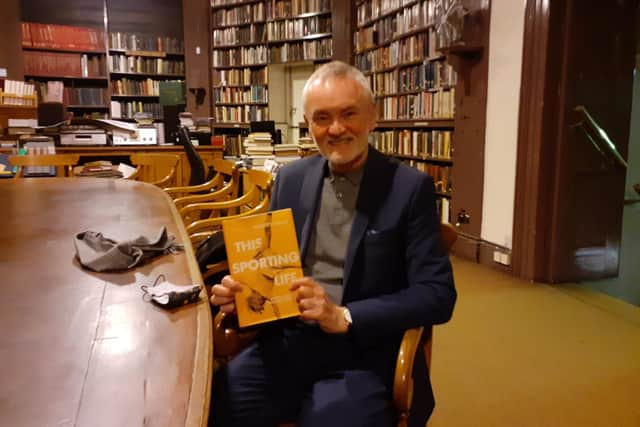South Shields author pens award winning book looking at role of sport in region’s history and culture
and live on Freeview channel 276
The book analyses the role of sport in the evolution of social and regional cultural identity and its importance to people at that time – particularly the working class.
Speaking at the historic Lit and Phil Library in Newcastle, Robert, 72, said: “Much of history is documented through literature but I wanted to look at how people who weren’t literate expressed themselves during a period when many people couldn’t read or write.
Advertisement
Hide AdAdvertisement
Hide Ad"The way many people expressed themselves, other than words, was through sport. Sport allows us to understand the English culture beyond the written word.”


Robert spent much of his professional life as a Professor of English History at Leicester University, but having been born in South Shields, the son of a shipyard worker, the significance of sport in North East culture plays a prominent role in the book.
While football and the familial allegiance to Sunderland or Newcastle is synonymous with North East culture it was the sport of rowing which used to stir the emotions of sports fans in the first half of the 19th century.
Robert said: “There were rowing teams and clubs which would often see as many as 10,000 spectators on the banks of the River Tyne. Like football today, there was real tribalism between the different regions with rowers competing against teams from other cities on rivers such as the Thames and Mersey.
Advertisement
Hide AdAdvertisement
Hide Ad"Teams would even compete against other countries. It was the same profile of man who would later go on to play football; working class, athletic and muscular.”
However the advent of industrialisation and the associated pollution and deepening of waterways, along with the construction of heavy-industry along the river banks, led to the gradual marginalisation of the sport.
Robert added: “People simply had less access. In Newcastle, parkland called the Forth was the recreational playground for people who also used it to access the river. However this area disappeared due to the building of industry and what is now Central Station.
"This left a cultural void in the middle of the 19th century which was eventually filled by football. The success of football was built on the same principles as rowing and other sports – that sense of freedom of expression and belonging.”
Advertisement
Hide AdAdvertisement
Hide AdThe region also features in one of the book’s earliest chapters, entitled Bonnie Moorhen, which focuses on poaching – a form of “hunting by the working classes” which led to the Great Poaching Wars at the end of the Napoleonic era.
Robert said: “Poaching led to gunfights between the poachers and gamekeepers of the Duke of Northumberland and Bishop of Durham.
"Poaching is a sport in the sense it’s poor man’s hunting. The book looks to redefine what sport actually is which for me is something you do for amusement and pleasure.”
After a decade in the making, Robert added: “This is the book I’m most proud of but it will also be my last.”
Advertisement
Hide AdAdvertisement
Hide AdThis Sporting Life was named the Sunday Times History Book of the Year and was awarded the Aberdare Prize for sports writing.